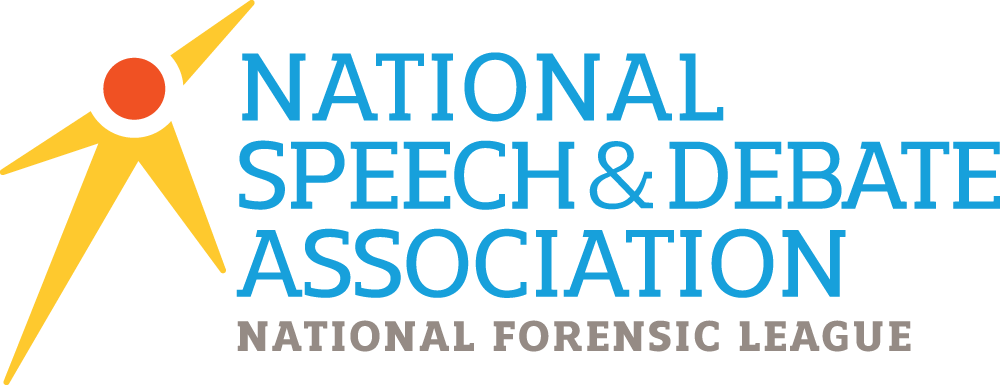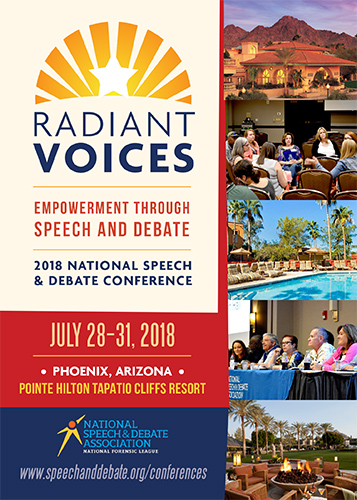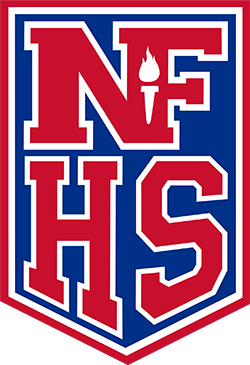NSDA National Conference 2018
Looking Back at the 2018 NSDA National Conference

Schedule
Times are shown in MT.
4:00 p.m. to 6:00 p.m.
Registration
6:00 p.m. to 7:00 p.m.
Reception
7:00 p.m.
Keynote Address
7:30 a.m. to 8:45 a.m.
Breakfast
9:00 a.m. to 12:00 p.m.
Sessions
12:00 p.m.
Lunch
1:30 p.m. to 5:00 p.m.
Sessions
7:30 a.m. to 8:45 a.m.
Breakfast
9:00 a.m. to 12:00 p.m.
Sessions
12:00 p.m.
Lunch
1:30 p.m. to 5:00 p.m.
Sessions
7:30 a.m. to 8:45 a.m.
Breakfast
9:00 a.m. to 12:00 p.m.
Sessions
Keynote Speakers
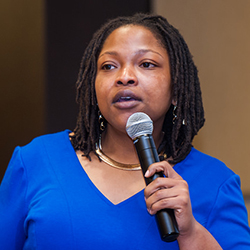
LaToya Green
KEYNOTE | Saturday, July 28 • 7:00 p.m. MST
About LaToya
LaToya Green’s engaging and humorous style captivates audiences and introduces listeners to tips and techniques that foster a stronger foundation of purpose. LaToya believes that “inspired people, inspire people” and threads that idea through all of her presentations. Motivated by the “bigness” of life, LaToya encourages people to DO something with the opportunities it provides. Because inspiration can be contagious, LaToya counsels people to set the atmosphere instead of reflecting it by being a thermostat in a world of thermometers.
Her ultimate passion is to empower leaders and social entrepreneurs to chase the goals they set with a refreshed, refined perspective. In her view, personal, social, and professional change happen when you begin to see things in “higher definition.” By observing the dynamic ability of individuals to provoke action in her own life; from the preachers in the pulpit to activists in community politics, she has gleaned from the wisdom of effective leaders. LaToya now seeks to share that wisdom with others through Higher Definition Leadership and Empowerment Coaching (HDLEC).
LaToya brings to HDLEC more than 10 years of experience in community and academic organizational leadership and five years of debate and argumentation. She has spoken before large audiences at Columbia University, Morgan State University, the University of Kansas, Emporia State University, the University of Texas at Austin, and the University of Southern California. She holds a BFA in Communication-Public Relations and an MA in Communications rhetoric, and is currently a Professor and Director of Debate at California State University-Fullerton, and is celebrated as one of the best “debate minds” in the activity. Honors include the 2015 Weber State University Coach of the Year Award, the Cross Examination Debate Association 2015 Mid-America Critic of the Year Award, and the Kansas City, Kansas Community College Most Preferred Critic of 2014. She has been featured on NPR, KKFI’s “Guess Who’s Coming to Kansas City,” KPRT’s “Generation Rap,” and she co-hosts her own original podcast called “The Chop Up.”
LaToya has been at the forefront of cultivating collaborative attitudes, encouraging meaningful and positive engagement, and challenging individuals to maximize opportunities. Personally, socially, and professionally she has enjoyed inspiring people to become the best versions of themselves, and she is now available to motivate and challenge your students, employees, and board members to be inspired people who inspire people.
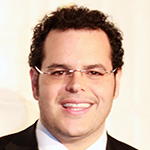
Josh Gad
KEYNOTE | Sunday, July 29 • 12:30 p.m. MST
About Josh
OO National Champion ’98 and ’99
HI National Champion ’99
Josh Gad is an actor, comedian, and singer. He is best known for voicing Olaf in Frozen, playing Elder Arnold Cunningham in the Broadway musical The Book of Mormon, and starring as LeFou in the live-action musical film Beauty and the Beast.
Gad attended NSU University School in Florida, graduating in 1999. While there, he won the NSDA national championship in Original Oratory in 1998, and in Humorous Interpretation and Original Oratory in 1999.
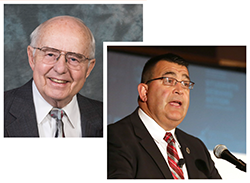
James M. Copeland and J. Scott Wunn
KEYNOTE | Monday, July 30 • 9:15 a.m. MST
About James and Scott
James Copeland is a three-diamond coach and member of the NSDA Hall of Fame. During his tenure, he coached five national champions (three in Boys’ Extemp, two in Oratory) and six runners-up (a Policy team and four orators—one student twice) among the 27 students who reached the final round. He is the only person to hold every NSDA office: district chair, councilor, vice president, president, and secretary. During his 18 years as secretary, the organization changed markedly, growing to include corporate and foundation sponsorship, student scholarships, new events at the National Tournament (including Duo Interpretation, Public Forum Debate, and Storytelling), a professional awards assembly, an educational video series, computer credit point recording, and an expanded Rostrum magazine.
Scott Wunn has been the Executive Director of the National Speech & Debate Association since 2003. He earned his Bachelor of Arts Degree from Graceland University in 1993 and his Master’s Degree in Communication Studies from the University of Northern Iowa in 1999. He began his career with the Association as a forensic coach and classroom instructor in 1993. During his 10-year coaching career, Scott’s students experienced great success including several national finalists and the 2002 national championship in Humorous Interpretation. Scott is a two-diamond coach and a member of the Key Coach Society of the Barkley Forum for High Schools. During his current tenure as Executive Director, Scott is most proud of the advancements the National Speech & Debate Association has made in coach education programs, community related program development, and communication and cooperation among the leadership of the Association.
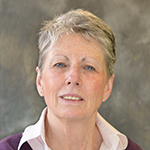
Mary Gormley
KEYNOTE | Monday, July 30 • 12:30 p.m. MST
About Mary
Mary Gormley is a five-diamond coach from Montville Township High School in New Jersey. As an educator for 38 years, Mary continuously integrates the values of the National Speech & Debate Association into her teachings, transforming the lives of her competitors, students, colleagues, and children. The longest-serving active coach in New Jersey, she has coached thousands of students over the course of her career. Under her tutelage, more than 50 of her competitors have qualified to the NSDA National Tournament. Mary was recently inducted into the NSDA Hall of Fame this summer, and she was named the 2018 NSDA National Educator of the Year in 2018.
Graduate Credit
Radiant Voices – One Credit | Cost: $115
View One Credit Syllabus »
Radiant Voices – Two Credit | Cost: $330
View Two Credit Syllabus »

Session Overviews
Does Your District Have Untapped Potential?
Presenter: David Ross, CEO of P21, the Partnership for 21st Century Learning
Running an NSDA district creates too many decisions and tasks for one person to handle; likewise, each district contains too much leadership potential to leave untapped. Want ideas on distributing power to protect your sanity and allow you to get more input from different perspectives? David Ross from the Partnership for 21st Century Learning will give you ideas to do just that in one of several sessions devoted to your leadership role.
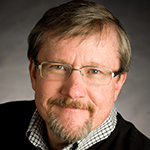
Additional topic areas in the NSDA Leadership Track include:
- Future of Congressional Debate | Presenters: Pam Cady Wycoff, Apple Valley High School, MN and Kevin Berlat, Phoenix Central High School, AZ
- Understanding District Finances | Presenter: Laura Stein, NSDA Director of Business and Finance
- Prioritizing the NSDA Core Values: Integrity, Inclusion, Service, and Leadership | Presenters: Jay Rye, The Montgomery Academy, AL and Tim Sheaff, Dowling Catholic High School, IA
- The Future of District Qualification | Presenter: J. Scott Wunn, NSDA Executive Director
- ROUNDTABLE: The Impact of School Size and Type on District Composition | Facilitated by: Jennifer Jerome, Millard West High School, NE
- Finding your Voice as a Regional and National Leader | Presenters: Rob Moeny and Jan Pizzo, North Valley High School, OR
The Art of Persuasion in the English Language Arts Classroom
Presenter: Mary Gormley, Montville High School, NJ
This session will utilize the strategies of effective writing to expose the dangers of propaganda and fake news, as well as a method of galvanizing an audience to make positive change. Attention will be paid to methods used by effective orators and ordinary citizens that demonstrate one voice can make a difference. Attendees will leave with a better understanding of the power of construct: diction, syntax, tone, and voice as tools of persuasion.

Big Fish, No Pond: Teaching Debate in Isolated Regions
Presenters: Chris Flowers, Cabot High School, AR; Rosie Valdez, Little Rock Central High School, AR
Whether you’re new to teaching or just new to a district, this session is for those rogue debate coaches operating in isolated regions and communities who want to connect students into the national Policy Debate circuit. Whether it be a lack of competition, professional contacts, or even a lack of student diversity, coaches will benefit from this session through a dialogue with like-minded coaches and opportunities to problem solve with colleagues. Along with this forum, the facilitators will share valuable information and resources for ambitious educators looking to make a big impact with limited resources.
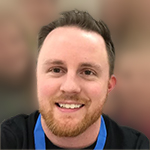
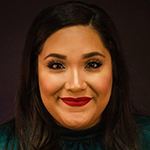
Board Games, Not Bored Games
Presenters: Susan Anderson, Richardton-Taylor High School, ND; Marj Bubach, Magic City Campus HS, ND
Would you rather sit in a tight, small, closed box for a one-day plane flight or ride with pigs in the back of a truck for a two-day trip? What if you were challenged with being a server at a table but had to demonstrate how you would take everyone’s order by speaking like Captain Hook? Research supports the benefits of games in speech and debate. I-Jung Chen’s article in the TESL Journal asserts games are learner centered, promote communicative competence, create a meaningful context for language use, increase learning motivation, reduce learning anxiety, integrate various linguistic skills, encourage creative use of language, construct a cooperative learning environment, and foster participatory attitudes of the students. Games can unite a group of students, offer a great avenue for teaching all students how to use better vocal skills, show students how to develop engaging body language, and teach them how to write a speech with more colorful and succinct language.
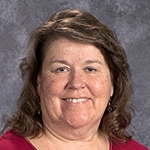
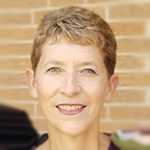
Confidence: The Key to Discovering Your Voice
Presenters: Richard Bracknell, Carrollton High School, GA; Jay Stubbs, Bellaire High School, TX
So many people are afraid to share their message or unsure if others will accept their message. Confidence is the key to unlocking the inhibitions that prevent many from accessing their voice. This session will explore proven ways to create an environment for new students that will foster confidence in the competitive world. Experience has proven that when students find success early in their career, it fosters increased confidence in them as individuals and increases commitment to your speech and debate program. Attendees will leave the presentation with ideas that can be implemented for the coming school year to create an atmosphere of confidence.
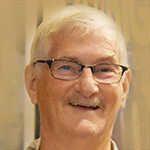
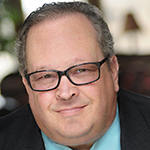
Congressional Debate as an Avenue for Personal Empowerment
Presenters: Kevin Berlat, Phoenix Central High School, AZ; Brittany Stanchik, Desert Vista High School, AZ
This session will provide the teacher or coach with the ability to utilize the Congressional Debate format to allow students and the community to express themselves on issues of immediate importance. Participants will walk away with an idea of how to structure the debate, how to set up a debate in their classroom or community, and how to provide opportunities for students and communities to empower themselves through debate.
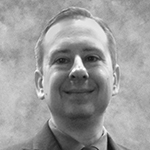
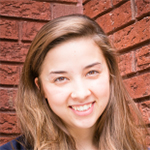
Connecting Our Voices: Building Bridges Between High School and College Speech and Debate
Presenters: Kristen Stout, Crowder College and Greenwood Laboratory School, MO; Heather Walters, Missouri State University and Greenwood Laboratory School, MO
The bond between the high school and college speech and debate community should be stronger. The community as a whole is better when there is mutual understanding of the benefits of participation at all levels. College participation opens financial, social, and academic doors and creates other unique opportunities for students. This session aims to assist instructors in helping their students make a successful transition to college competition.Teachers will leave with an action plan for helping students decide which college programs best fits their needs as well as resources for helping students navigate the college application process as it applies to college speech/debate programs. This session also hopes to foster dialogue on issues that high school coaches have had regarding college influences in the debate community. A question and answer session will allow coaches to ask about argument trends in the college community, both broad and specific.
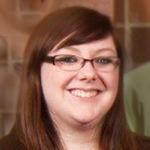
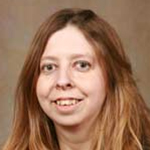
Creating Environment: Building a Set in Which the Character Can Live Truthfully
Presenters: Meg Howell-Haymaker, Mountain View High School, AZ; Debbie Simon, Milton Academy (Retired), MA
Successful interpretations create believable characters who live real lives. An essential part of inventing these types of characters is creating an environment, a set. We will explore the importance of developing the characters’ worlds, the need to become a set designer, and techniques to build the locales for you interper. The goal of this session is to empower the interper with the ability to go beyond the simple techniques of miming vague actions of their characters or performing in limbo to living in an entirely realized environment. This dramatic work helps the interper build the believability of their characters and their story. When characters come to life and the audience can see them existing in their worlds, the audience is more likely to be swept up in the moment. Attendees will view clips of successful interps that were able to create viable environments and compare them to interps where the situation is lacking or could have been enhanced. Then the session will explore a few techniques such Dr. Rives Collins’ (Northwestern University) “House Tours,” which enable students to become set designers using their text to see a three-dimensional world for their characters.
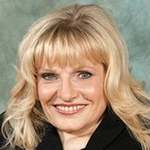
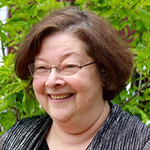
Demonstration, Recommendation, and You in a Box Speeches: Three Units for Any Speech Class
Presenter: Steve Meadows, Danville High School, KY
This session is for the Speech class teacher looking for unit plans to use in class. The demonstration (how-to) speech is a Speech class classic with visual aids and organizational steps. The You in a Box speech helps nervous and new speakers break the ice about themselves and learn basic speech structure. The recommendation speech instructs about presentation software and persuasion/research. Attendees will leave with all materials, daily calendars, and rubrics for these three speeches.
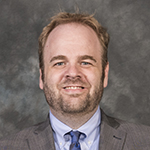
Developing a Growth Mindset: A Practical Guide to Leading Your Team with Purpose
Presenter: Rusty Bender, Communication, Speech, and Theatre Association of North Dakota
This session will provide the tools to help lead students into a desire to learn from ALL experiences—helping students discover how to embrace challenges, persist in the face of setbacks, learn from criticism, and find lessons and inspiration in the success of others. The goal is to move students from a fixed mindset to a growth mindset. The session will begin by having participants reflect on how their current practice aligns with and meets what they believe is their end goal in working with students. Through group discussion and audience participation, attendees will gain a clear vision of how to guide practices with purpose, and an even deeper understanding of how to help students develop into the best that they can be, by giving them the tools needed to be lifelong learners. Each participant will leave with three SMART goals that will help them successfully implement this approach into their practice with confidence and ease.
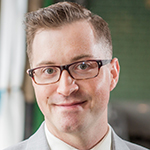
Developing Voices and Leaders: Hints for Teaching, Coaching, Surviving, and Thriving
Presenter: Martha Benham, Cherry Creek High School, CO
Empowering students to find their voice is the greatest reward for teaching and coaching speech and debate activities. This session will examine methods you can employ to recruit and retain students, empower students to find their voice, and develop students as leaders. Some of these methods include classroom activities, student leader selection processes, tournament hosting, student mentoring, and student recognition. Bring your concerns and your ideas because this will be a highly interactive session where you can exchange ideas with others. Helpful hints and ideas to manage your classroom and team will be shared. Attendees will leave with handouts, activities, resources, and ideas to use in the classroom and with their teams.
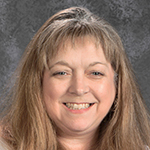
Discovering Sanity: Systems and Tools for Logistically Managing Your Speech and Debate Program
Presenter: Travis Clement, Scottsdale Preparatory Academy, AZ
Do you sometimes feel that you spend more time managing hundreds of logistical tasks than you do actually coaching? From creating calendars and team directories to fundraising, budgeting, tournament registrations, coordinating volunteers, and many other tasks—a coach’s work is never done. The goal of this session is to empower you to be the best coach possible (spend more time coaching the kids) by equipping you with tools for team management. Please bring a laptop (or other device), as you’ll be hands-on with exploring various technology tools such as Google Forms, Slack, and Charms Office Assistant.
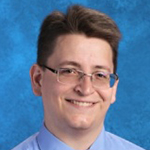
Dual Voices: Exploring the College Board AP Capstone (Seminar and Research) Program Through Debate
Presenter: Dario Camara, Western High School, FL
AP Capstone is a College Board program that equips students with the independent research, collaborative teamwork, and communication skills that are increasingly valued by colleges. It cultivates curious, independent, and collaborative scholars and prepares them to make logical, evidence-based decisions. Speech and debate students can succeed in AP Capstone with the skill sets they learn daily in competitive speech and debate. Therefore, merging the two disciplines is a natural and great way to introduce new AP programs to your school, teach a rigorous course that is parallel to speech and debate, and empower the students with important everyday life skills.
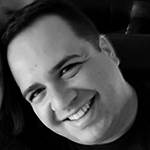
Effective Tournament Management: Empowering Your Students and Program
Presenter: Manuel Halkias, Canton McKinley High School, OH
For the past 30 years, Manuel Halkias has had the opportunity to host one of the most efficient and well attended tournaments in Ohio. He has created and picked up many things that can help attendees be successful in hosting their own event. He involves his students, he makes each tournament a platform for students to grow as speakers and leaders, and as a result, he is also able to succeed financially. Attendees will leave with a mini-handbook of check lists, tips, and strategies; hear the voices of Manuel’s students; and leave with the passion to host their own event on a variety of scales. Participants will interact, share, and grow!
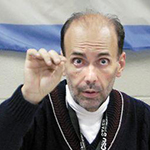
Empowering Student Voices and Leadership in a Competitive Setting
Presenter: Victor Silva, Desert Vista High School, AZ
This interactive session will focus on the methods used at Desert Vista High School to empower student leadership and give students a platform to lead the team though speaking at team meetings, identifying issues, and developing/implementing their solutions, using interpretation and debate to speak on issues that students care about, giving students the tools to make positive choices, and connecting younger and older members to create a connected team. This session will center on how studens are empowered to lead team meetings, find and fix issues on the team, and act as coaches and leaders. Desert Vista High School has a systematic curriculum and approach to leadership and empowering students to lead. Attendees will leave with a step-by-step method to empowering students and clear activities that give students the ability to help lead their team.
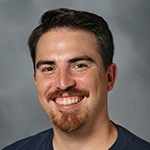
Empowering Your Team with Technology
Presenters: Christopher Rogers, Canyon Springs High School, NV; Julie Roos, Canyon Springs High School, NV
Keeping a team organized is one of the most difficult tasks one encounters as a coach. Learn to use Google Forms, Google Drive, and Zoom to keep your team humming even when you can’t all be in the same place at the same time. Have you ever wanted to meet with your debaters but the only time they could all sit down was 8 p.m., and you really didn’t want to be at school that late on a Tuesday? Well, that’s where Zoom comes in. Zoom allows coaches to begin meetings with whole group lecture, including screenshare, and then move students into smaller groups tasked with specific topics. Via the host menu, coaches can move between breakouts, monitor where students are, and send messages to each group chat calling them back. Students can retrieve lectures via durable links to YouTube videos, and screencast from their Google Drive accounts. Participants will have the opportunity to engage with the technology and plan by bringing a connected device to the session.
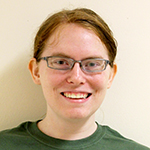
Fighting the Elitism Trap
Presenter: Karson Kalashian, Orosi High School, CA
How do we ensure that speech and debate, as an activity, is open and accessible to all students? If resources seem to make certain teams more competitive, and if lack of resources discourages some students from gaining some of the non-competitive benefits of speech and debate, what can be done to bridge the ‘economic divide’? This session attempts to address a variety of issues related to coaching students in a low-income setting, such as: how to set up a team (organizationally and administratively, from the coach up to the local school board); how to recruit members to the squad; how to retain members on the squad; how to coach members of the squad; how to address and handle competitive inequities; how to continue to fund the team; etc. While it may seem like a large mountain to climb, it IS possible to take students from schools that may not be what some would consider ‘speech and debate’ institutions and turn them into powerful communicators who are ready to compete in a global economy. The key is having an organized approach to handling low-income situations based on empirical examples. Reaching those who need opportunities through speech and debate should be a critical goal for us all. Attendees will have the opportunity to share best practices, ask questions, work with one another, and also have access to a proposed budget, a lesson plan, and a speech and debate course submission for college credit.
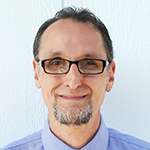
Finding the Honest Voice of the Character
Presenters: Timothy Cornwell, McClintock High School, AZ; Meg Howell-Haymaker, Mountain View High School, AZ; Debbie Simon, Milton Academy (Retired), MA
The development of the character is at the heart of a successful interpretation. This session will examine the need to move beyond beginning level development that often results in stereotypical portrayals of characters and caricatures of race, disability, class, gender, and sexuality. In modern society with ever-changing identities, interpers need to bring to life the voices of characters without judgment and or appropriation. The panel will examine clips of interpretations where the development of the character is more realistically representational of the truth of the person without relying on stereotypes or caricatures and compare them to other presentations. Attendees also will explore techniques like Hot Seat, Kodak Moment, and other Character Improvisation techniques to help students both understand these differences and how to develop honest performances that represent the miracle of a human being.


Fostering Inclusivity and Safe Spaces at Tournaments: Best Practices
Presenter: Angelique Ronald, California High School Speech Association, CA
In this session, the scope of issues surrounding marginalized student communities and their needs will be explored along with solutions that teachers, coaches, and tournament directors can use to improve the experience of students in the activity. Classroom activities, practical solutions, and best practices will be shared with materials for making your class, team, or tournament a safe space for all participants.
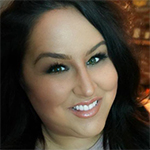
Google Docs: How This FREE Technology Can Make Administrative Tasks Easier
Presenter: Jeri Neidhard, Centerville High School, OH
In the “old days,” Jeri Neidhard relied on bulletin boards filled with sign-up sheets for coaching, tournaments, and selected titles. She was continually running handouts with tournament information, schedules, instructions, guidelines, and travel forms—not to mention the empty file folders that left her distraught because someone mistakenly took the “master copy” of some speech or cutting! Even if you suffer from TECHNOPHOBIA, there is a much easier way to handle the reams of paperwork and access sign-up sheets in “real time.” Join this session with your laptop, and Jeri will give you ideas and templates to simplify the administrative side of coaching and teaching.
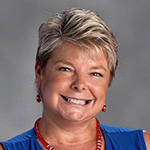
Helping New Teachers Find Their Voice: A New Teacher’s Toolkit
Presenters: Kristen Stout, Crowder College and Greenwood Laboratory School, MO; Heather Walters, Missouri State University and Greenwood Laboratory School, MO
The first few years in the classroom are undoubtedly the hardest. This session aims to help teachers accumulate resources and expand activities to create a productive and organized classroom. This session will include a suggested curriculum that phases in events to develop a full service program. Specifically, this session will demonstrate how to use example videos as a teaching tool. The video used in this session will focus on the 2018-2019 Policy Debate topic, following the NFHS novice case list. However, the lessons for both teaching fundamentals and specific content are transferable across all debate formats. Additionally, this panel will discuss the logistics of running a program. How to organize, travel, and find nearby tournaments will all be included. A question and answer period will allow teachers to ask questions about starting or expanding their program. Attendees will leave with access to demonstration videos and tools to start and grow their program.


Hiding the “Vegetables”: How to Successfully Teach Reading and Literacy through Speech and Debate
Presenters: Janell McLeod, Broward County Public Schools, FL; Justin Weaver, Broward County Public Schools, FL; Megan West, Broward County Public Schools, FL
Approaching its seventh year of implementation, the Broward County Debate Initiative reaches more than 12,000 students at more than 130 schools in South Florida. During the 2017-2018 school year, that number increased due to the introduction of a new course, Literacy Through Debate. Replacing the “double block” of reading courses at five pilot middle schools, Literacy Through Debate was created to assist low AND high level readers with their test scores and overall interest in reading through engaging speech and debate content. This session will dive into the mechanics of the course and share how to “hide the vegetables” by embedding literacy standards in debate curriculum at ANY grade level (something Broward is planning to do for the 2018-2019 school year).
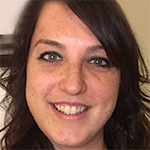
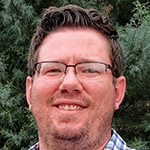
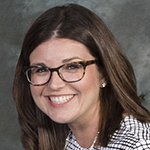
How to Listen; How to Speak; How to Debate
Presenters: Pam McComas, NSDA Board Member, Topeka High School (Retired), KS; Renee Motter, Air Academy High School, CO
Teachers are always looking for new ways to engage students and push them to further depths of critical thinking and analysis, skills which are all cultivated in the speech communication discipline. Focusing on listening, speaking, and arguing, this session will give teachers knowledge to be able to incorporate and share a variety of best practices to enhance instruction. Participants will engage in a number of different activities that can be used to teach and reinforce skills such as listening, argumentation, and critical thinking. Session participants will come away with ideas to implement speech and debate activities in their own classes, and to help colleagues incorporate these exercises across the curriculum.
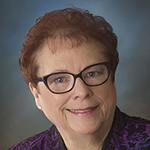
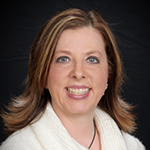
How to Pass the Torch Without Burning the Place Down
Presenters: Don Crabtree, Park Hill High School, MO; Tyler Unsell, Park Hill High School, MO
Don Crabtree and Tyler Unsell will address how to pass on an established speech program from an older coach to a new coach. This session will address some of the questions and concerns new and veteran coaches may have. Tyler and Don have been through the process before and hope to provide some comfort and clarity to coaches who may find themselves on either end of this particular scenario.
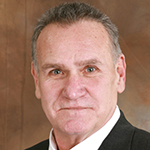
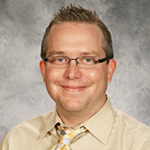
Innovations in Impromptu: How Radical Strategies will Revitalize Spontaneous Speaking
Presenter: Iain Lampert, iLEAD North Hollywood, CA
How tired are you of hearing Impromptu speakers launch into the same three examples, speech after speech? Iain Lampert, coach of more than 100 Impromptu Speaking champions (including the 2017 NSDA Impromptu national champion), leads a discussion on how you can move beyond typical structures and incentivize more spontaneity and honesty in Impromptu Speaking. Participants will analyze 10 primary transformative proposals, including zero-prep-Impromptu, multiple-prompt-Impromptu, thesis/anthesis-Impromptu, and more. Attendees will leave with a toolbox of tips, tricks, and strategies intended to spark creativity and produce learning outcomes that reach beyond mere competitive success. Come on down and join the discussion!
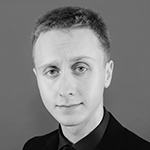
Joining the Conversation: Bringing Middle School Voice to Life through Speech and Debate
Presenter: Elisabeth Venetiou, The Pike School, MA
Calling all middle school teachers, coaches, and administrators! The value of a middle school speech and debate program has community-wide benefits. This session will dispel myths about middle school students, make the argument to include speech and debate as vital components of curricular and after-school programs, and provide ways for middle school coaches and teachers to form a community. We will discuss selection of material for speech and debate, inter-disciplinary opportunities inside the classroom, how to grow a competitive team, and ways to get middle school students involved. Learn how engaging students in speech and debate early in their middle school careers empowers students to find their voices, encourages exploration of social justice issues, emboldens them to use their skills in high school, and fosters community as students return to contribute to the vitality of the middle school program. Join the conversation!
Judging and Assessing Voices Radiantly: Pedagogical Evaluation
Presenter: Adam J. Jacobi, Wisconsin High School Forensic Association, WI
Judging speech and debate contests often focus on determining “the best” and “armchair quarterbacking” what a student could have done to defeat others in competition—often resorting to suggesting gimmicks successful students employ, regardless of whether it’s contextually purposeful for other contestants. In classroom settings, we easily become preoccupied with ticking rubrics and checklists for presentations, because it’s efficient. Whether judging or assessing, we must consider what criteria motivate evaluation decisions, how focused we need to be on minutiae of technicalities, and what truly makes for a radiant presentation. Session participants will discuss common standards for evaluation, explore effective versus ineffective approaches, and workshop new approaches toward deepening the feedback they can offer students. This session is aimed at scaffolding better evaluation for inexperienced coaches/educators, as well as sharpening and challenging how veteran coaches/educators approach evaluation. Students work hard on their presentations, and effective evaluation helps them radiate even more confidence throughout their lives.
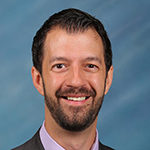
Making Policy Personal: Narrative Performance in the St. Louis Urban Debate League
Presenter: Kelli Rao, McKinley Classical Leadership Academy, MO
The field of Policy Debate is widening to create space for more cultures and experiences. In this session, attendees will know what to look for in a team that takes a critical narrative approach, how to start a team on their journey, and how to continue their growth throughout the season. Attendees will create their own narrative and problem solve for possible pitfalls in carrying narrative Policy into tournament competition.
Making Space: Managing Your Team to Provide an Opening for Everyone to Find Their Voice
Presenters: Richard Glover, McClintock High School, AZ; Susan Seep, Horizon High School and Southwest Speech and Debate Institute, AZ
Forensics is an opportunity for the development of an extraordinary amount of cultural and social capital, and an opportunity for a wide variety of people to make themselves heard. For those goals to be met, the space we create on our teams must be one where everybody can be included. Making speech and debate open and accessible is taken very seriously by Richard and Susan. They hope to share their thoughts and strategies for doing so with the community, in the hope that more coaches and more teams will take on the unique challenge of creating forensics as a space for the voices of the marginalized, not just for the voices of the privileged few. Attendees will leave with ideas and strategies for creating an open and accessible team culture, building inclusive spaces, and creating a culture of leadership among students.
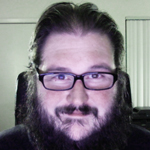
Mentor Model
Presenter: Christy Briggs, Reno High School, NV
This session will be catered to the new teacher/coach. In the session, attendees will learn how a veteran teacher has used advanced speech/debate students to mentor and teach novice students. There will be time for questions and answers midway through the session. Attendees will walk away with methods to incorporate into their classrooms when they return to school.
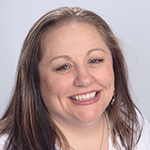
A New Era of Advocacy: Our Engagement With Civil Discourse
Presenters: Kristen Stout, Crowder College and Greenwood Laboratory School, MO; Heather Walters, Missouri State University and Greenwood Laboratory School, MO
Advancing quality argumentation is a goal of all debate coaches. This should include finding the most accurate resources and presenting the best and most true arguments for a position. The 21st century and the rise of technology/the internet have brought some unique problems when it comes to finding accurate, objective information on a topic. Fake news, sponsored content, and alternative facts are three of the most notable barriers to achieving objective argumentation. This session will discuss these argument trends and offer suggestions for practical, new ways to advance critical thinking in the classroom to create effective and ethical advocates for society. The session will also demonstrate activities that are designed to explain the difference between fake news or sponsored content and less biased sources. Attendees will leave with activities and strategies for helping students access quality research and resources.


Original Oratory: From One Teacher to Another
Presenters: Joe Wycoff, Apple Valley High School, MN; Pam Cady Wycoff, Apple Valley High School, MN
Every good coach begins and ends by being called a Good Teacher. The Good Teacher knows the value of both written and verbal communication, whether it involves personal or group connection, empathy and intellect, or motivation and message. This session will focus on empowering a student’s voice through Original Oratory. This includes:
- inductive and deductive strategies for finding a topic,
- the role of both micro and macro thinking,
- the essential foundation of an organizational structure,
- the use and misuse of metaphor and personal narrative, and
- the importance of both interpersonal and intrapersonal communication.
Oratory embodies sharing a truth. Our goal is for attendees to leave with a better understanding of how to approach writing an original oration and practical strategies to help students create and shape their speeches. This session is designed to bring out the student’s voice so that the impact of the message will SHINE for all of the right reasons!
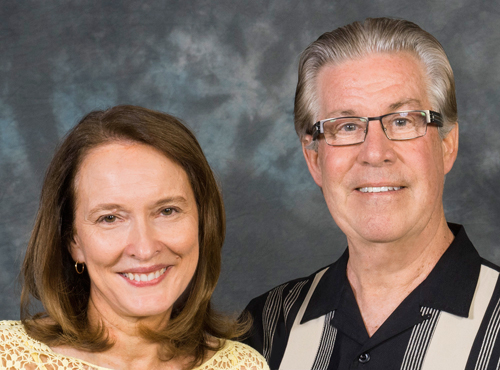
Original Performance: Showcasing Students’ Own Voices
Presenter: Jeff Stutzman, Concord High School, IN
How many times have you had students ask if they can perform their own Poetry, Prose, or even Humorous Interp? The state of Indiana created an event to allow students to do just that, present their original creations—from Poetry to Duo to Drama. Attendees of this session will leave with the rationale behind the event, ideas on how to help students get started writing their own pieces for performance (in classrooms, school showcases, etc.), and some possible ways to incorporate the event into your next local tournament.
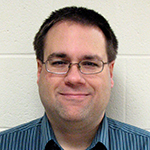
Political Activism or Political Neutrality in Speech and Debate?
Presenter: Jeff Joseph, Kent Denver School, CO
Speech and debate is, by nature, an activity that lends itself to discussion, presentation, and vigorous debate over political issues. This presents unique challenges for coaches and teachers who must navigate the fine balance between expressing political opinions and maintaining political neutrality. Yet, remaining politically neutral is increasingly challenging in this heated political climate. This presentation will be a discussion regarding how to encourage students to express their political voice and will present best practices for walking the fine line. Participants will leave with tools and advice on giving equal importance to conflicting views; presenting these views as open to interpretation; avoiding putting forward personal opinions as facts; taking care not to patronize or dismiss others’ viewpoints; avoiding facial expressions or tones of voice that may prejudice a point of view; and establishing an environment where students are free to express their views.
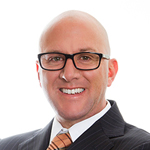
Radiant Speakers: Reconsidering our Communication Criteria
Presenter: David Yastremski, Ridge High School, NJ
While teachers of public speaking have long evaluated the traditional tenets of verbal and nonverbal delivery as part of their public speaking evaluation instruments, this workshop will help teachers and students employ a mentor approach to rubric development and self-reflection models. Students are encouraged to model their performance and presentation skills after a communicator whom they hold in personal esteem and who matches their performance and personality style. Workshop attendees will evaluate their own communication mentors and envision the communication behaviors criteria they personally and professionally seek to achieve.
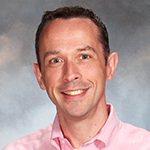
Reflective Journaling Empowers Radiant Voices
Presenter: Adam Jacobi, Wisconsin High School Forensic Association, WI
Teachers across disciplines employ reflective journaling for students to engage in awareness of their growth, chronicling thoughts during project development, and sharing struggles and triumphs. Journals allow teachers to measure progress from students’ perspectives, comparing them to how the student produces for summative assessments. Speech and debate journals give windows into tactics and choices students make for interpretation culling and cutting literature, debate case or speech research, or news articles, literature, and pop culture encountered for limited preparation or possible introductory material for speeches. It further allows students to process—objectively—peer and judge feedback, and what adaptations they plan for improving their performances. They may commit to personal and group/team goals in writing and outline specific tactics/action items they might employ to reach those goals. Session participants will discuss, brainstorm, and workshop approaches to journaling, guidelines and ground rules, and digital platforms they might utilize.

A Semester of Speech and Debate: Scaffolding a Syllabus to Support Classroom Learning and Competition
Presenter: Nick Klemp, Phoenix Country Day School, AZ
This session focuses on the creation of a speech and debate syllabus that empowers students while supporting a competitive program and offering structure and direction to students who are more reticent than others. The pedagogical purposes behind each assignment and scheduling choice will be explained. For example, to fulfill course requirements, students must complete assignments in Congressional Debate, Lincoln-Douglas, or Public Forum Debate and two speech events and must compete at two local tournaments. Grades are never dependent on competitive success but on quantifiable work done throughout the semester. Because assessment in these courses can be difficult, students self-assess about what they are proud of and where they have work yet to do. In addition to completing expected assignments, Nick has incorporated an extensive peer coaching system that works to support the class when he is absent. This session will discuss the advantages of the creation of separate classes for speech and debate and public speaking.
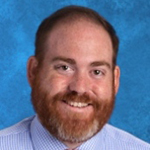
Speaking Like a Girl: The Role of Gender in Argumentation and Analytical Speech
Presenter: Rich Kawolics, Laurel School, OH
Beginning in the summer of 2017, Rich Kawolics’ team of 13 student researchers and an adult mentor conducted research into how male and female speakers are evaluated in argumentative and analytical speaking. They examined records from local and national circuit tournaments and conducted a 15-year chronological review of NSDA National Tournament results in Public Forum Debate, Lincoln-Douglas Debate, and Extemporaneous Speaking. Their data show a clear and pervasive disadvantage for female competitors in each of these events, as well as a troubling gender-based disparity in participation. In this session, attendees will examine the data, look at some possible causes, and examine some potential strategies for addressing the gender gap in debate and Extemporaneous Speaking. Anyone involved or interested in district leadership, tournament operation, or judge training will find this session to be eye-opening in revealing the reality of gender bias in speech and debate.
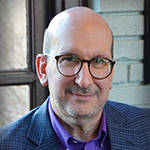
Taking Over an Existing Team
Presenter: Eli Woody Scrivner, Cherokee Trail High School, CO
Taking over an existing team is a process! There’s a delicate balance of what “old ways” to keep and what new things to incorporate and when precisely to do so. Is there an existing team captain system? Do you keep it? How do practices and signups for practices work? Where does all team information get stored? There are hundreds of questions, some of which pop up out of nowhere! This session will help you plan for taking over an existing team, whether you’re doing so this year, did so recently, or are looking to soon.
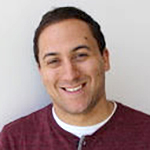
Team as Family: Building Community for Students
Presenter: Ashley McCulloch, Eaglecrest High School, CO
Speech and debate competition for students is typically focused on the work of the individual; however, by creating a strong sense of community within a speech and debate program, a team of individuals can become so much more. Attendees will leave the session with ideas and strategies to help grow their team into a cohesive community, from providing small opportunities to celebrate individuals on a daily basis to developing larger team workshop days and bonding activities.
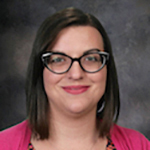
Testing the Limits of Empowerment: Tournament Directors’ Dilemmas in an Era of Protest
Presenter: Kevin Minch, Truman State University, MO
A core value of forensic education—and education in general—is the support of free expression. Yet most state and national forensic organizations place some limitations on speech in the interest of competitive efficiency, community norms of decency, and the protection of institutional members. As America’s political discourse—and the media in which it is transmitted—has evolved, protests have become more common, sometimes turning violent. Tournaments, because of the presence of politically aware and socially active students, are ripe locations for demonstrations of political activism. Are tournament hosts and forensic organizations adequately prepared to address incidences of protest as they arise? This presentation aims to provoke participants to envision scenarios of social and political protest as they might manifest themselves in a tournament environment and to contemplate policies and procedures that best address the array of values that forensic education supports.
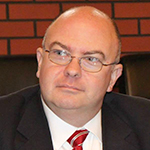
Turning Words to Action: Teaching Transformational Leadership Through Speech and Debate
Presenter: Ashley Murphy, Unionville High School, PA
Speech and debate is an activity that helps students build the skills that will empower them to be leaders. This session will create an opportunity for discussion about strategies available to coaches and teachers to use speech and debate as a platform for building transformational leadership skills. Attendees will examine practices that are adaptable to schools with a variety of different resources and needs. The information in this session may also be useful in helping to “make the case for speech and debate” to administrators. Participants will explore hands-on activities that build team atmosphere, challenge students to take on new roles, and help encourage growth from students as both competitors and leaders.
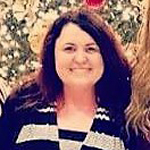
What To Do Once You Have Your Voice: With Great Power Comes Great Responsibility
Presenters: Richard Bracknell, Carrollton High School, GA; Jay Stubbs, Bellaire High School, TX
Discovering your voice is similar to receiving a great power that can accomplish the greatest things. In addition to discovering your voice, it is important to learn how to use it responsibly. This session examines ethical issues connected with a student discovering their voice. Examples range across all events including timely issues such as choosing evidence sources, cutting evidence ethically, and choices involving interpretation sources and language used in pieces.


Works of Literature Speak to Each Other
Presenter: Randall McCutcheon, Hall of Fame Member (Retired), NM
This session will share specific strategies to help students develop a love of literature. Interactive exercises will prepare participants to teach thematic unity. For example, students don’t read poetry primarily because of the poems we teach. Attendees will leave with numerous new strategies for both coaching and classroom. Among the takeaways are interactive exercises in how to elevate language level, to find literary allusions, and to make connections—practicing actual lesson plans (including an exercise created by the hilarious Bill Kloefkorn, State Poet of Nebraska) and ways to make Original Oratory, Program Oral Interp, and Informative Speaking more sophisticated. Aristotle believed that the highest form of thinking was metaphorical. Attendees will learn what that means and how to share that knowledge with students.
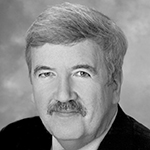
Conference Expo
Pricing
Questions? Contact Emily Kriegel.

2018 Conference Expo Guidelines
Reservations
While the National Speech & Debate Association will attempt to accommodate requests, final table placement will be at the discretion of national office staff. A reservation is considered complete once a Conference Expo Registration Form has been submitted to the national office and payment has been received by or before July 6, 2018. All payments are non-refundable.
Discounts
Conference Expo vendors who also exhibit at the National Tournament Expo (June 17-22, 2018) can receive 20% off their Conference Expo purchase. Please contact Emily Kriegel for details! Exhibitors may also attend NSDA National Conference sessions by registering here.
Times and Locations
The Conference Expo will be held during the following times at the Pointe Hilton Tapatio Cliffs Resort in Phoenix, Arizona. Vendors may arrive 30 minutes prior to the start time to begin setting up.
Saturday | July 28
4:00 p.m. to 6:00 p.m.
Sunday | July 29
9:00 a.m. to 5:00 p.m.
Monday | July 30
9:00 a.m. to 5:00 p.m.
Tuesday | July 31
9:00 a.m. to 12:00 p.m.
Equipment
Reserved exhibition space includes one six-foot or eight-foot table, depending on the location and availability of tables. Please bring power strips and extension cords if needed to access electricity. The NSDA does not guarantee access to electricity and will not provide power strips, power cords, or any other electronic equipment. Public Wi-Fi may be available with limited bandwidth at each venue. Premium internet access is available for purchase at the hotel. The NSDA cannot store any items for vendors prior to, during, or after the Conference Expo.
Expectations
These guidelines will govern all vending at the 2018 National Conference. The NSDA retains the right to amend its guidelines as needed.
The only exhibitors allowed to vend at the conference will be those who have reserved exhibition space through the NSDA. Non-approved exhibitors will be removed from the premises.
All fees must be paid prior to the start of the Expo. Exhibitors with unpaid fees will not be permitted to attend.
Noise/visual elements from booths must not affect the presentation of other exhibitors. Exhibitors must not impede the operation of the National Conference or exhibit where local rules do not permit selling of products.
Exhibitors must take all materials, including trash, with them at the conclusion of their vending period. A maintenance fee may be assessed if an exhibitor’s area is left disorderly or damaged.
Vendors are expected to remain within the vending area and not disrupt any competitor or coach in the course of their preparation for or during the actual competitions.
The Association reserves the right to refuse reservations to any exhibitor.
NOTE: Submitting a Conference Expo Registration Form indicates your knowledge, understanding, and acceptance of the Conference Expo Guidelines. If you do not agree to the guidelines, do not submit a Conference Expo Registration Form.

